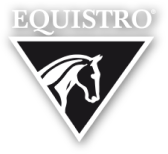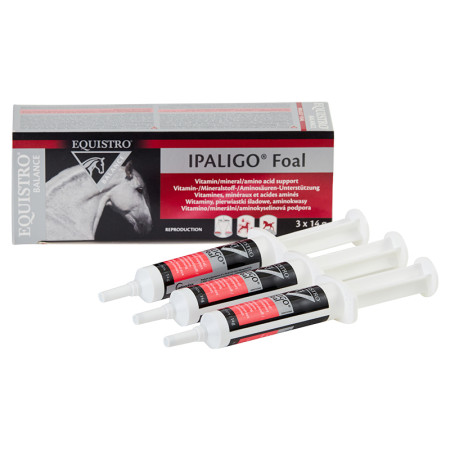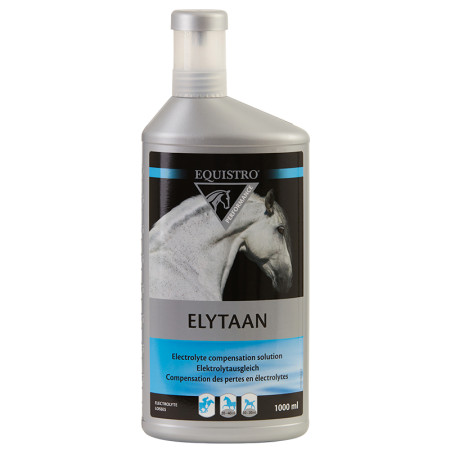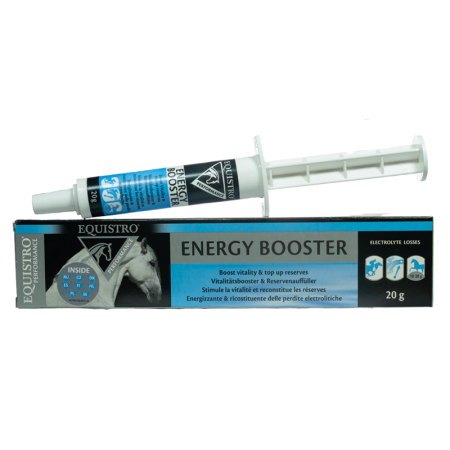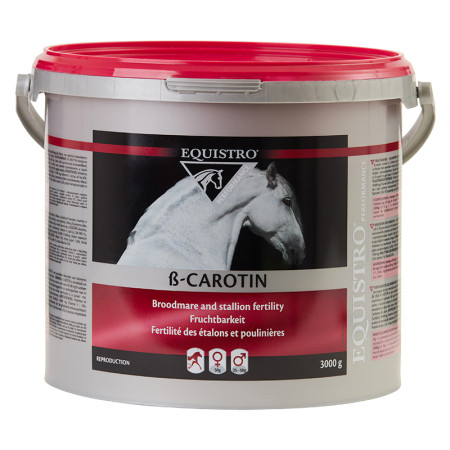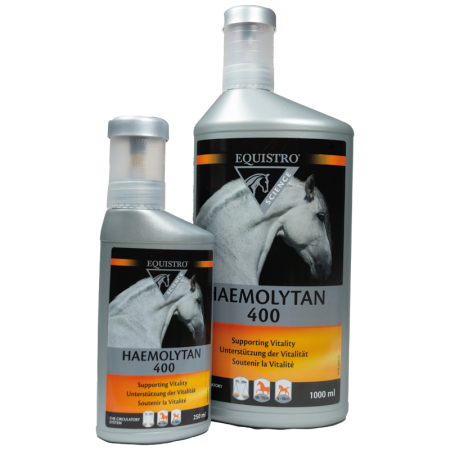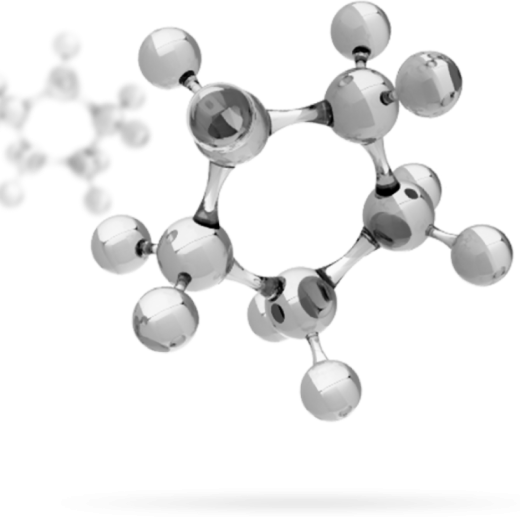
Iron
Function:
Iron (Fe) is contained in hemoglobin, myoglobin, cytochromes, and many enzyme systems essential for the horse’s organism to function normally. Fe plays a critical role in oxygen transport and cellular respiration.
Sources:
Forage and by-product ingredients commonly contain 100-250 mg Fe/kg dry matter (DM).
Grains usually contain less than 100 mg/kg DM. Some milled concentrates can have greater than 500 to 1 400 mg/kg DM. Calcium and phosphorus supplements often contain 2-3% iron.
Daily requirements (NRC, 2007):
- Growing foals, pregnant & lactating mares: 50 mg/kg DM.
- Mature horses : 40 mg/kg DM (0.03 mg/kg body weight).
- N.B. 500 kg horse eats approximately 2% of its body weight per day.
- i.e. 10kg dietary DM/day.
Deficiency:
Anaemia, reduced performance.
Excess (>500 mg/kg ration):
- Decreased absorption of copper, serum and liver zinc depression.
- Reduced bacterial resistance.
- Foals: diarrhoea, icterus (jaundice), dehydration, coma and death in very extreme cases, with pulmonary haemorrhage and liver degeneration.
When problems may occur?
Iron utilization diminishes with higher than normal intakes of cadmium, cobalt, copper, manganese and zinc. Young, milk-fed foals with no access to soil can develop anaemia. Iron injections are dangerous to horses, often resulting in severe reactions or death.
